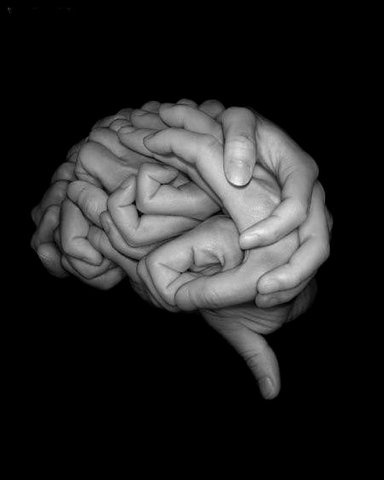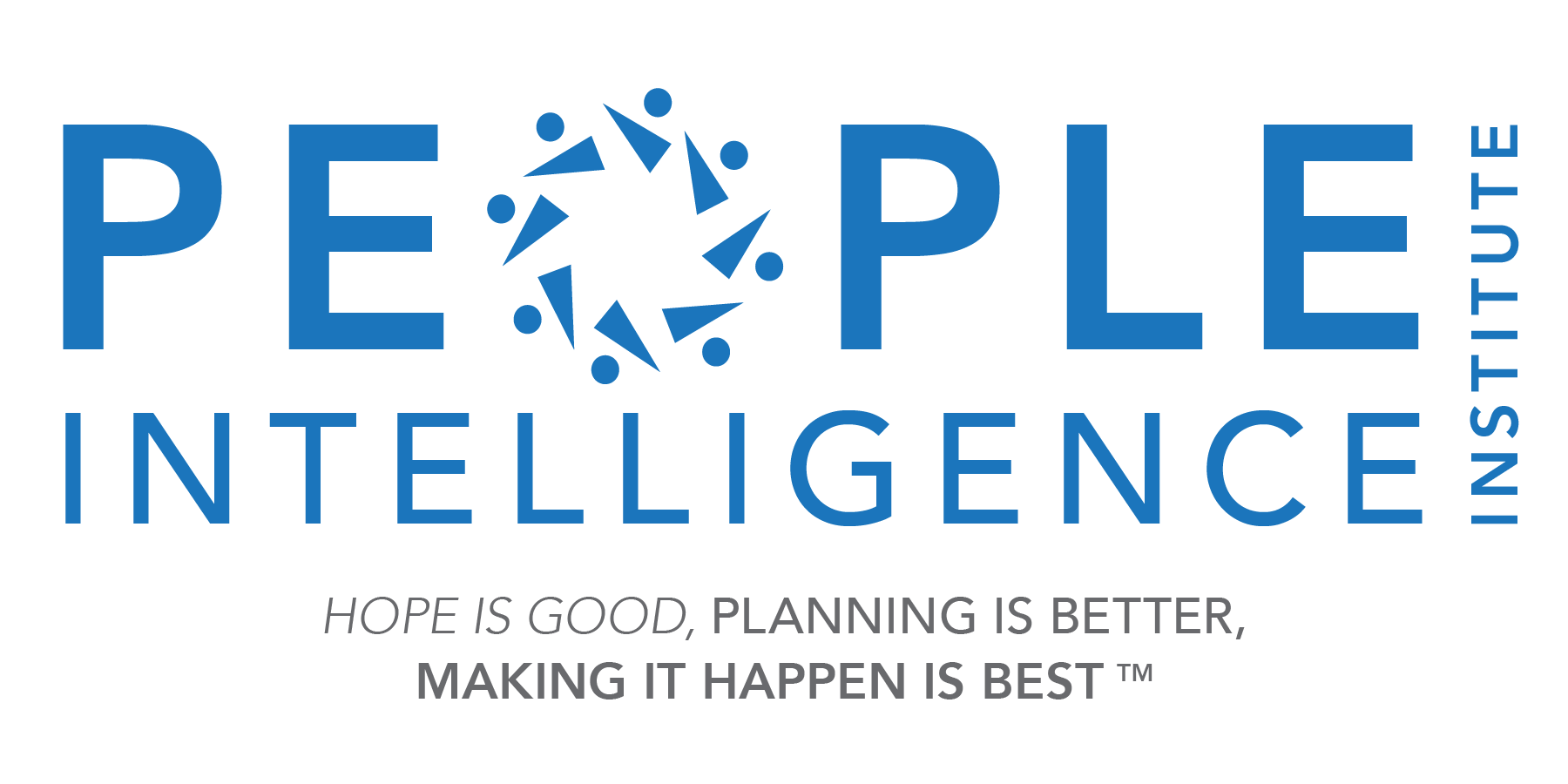"This course has helped train my eye and my mind to see more emotions in others, and as a result, have more successful interactions with others when they are emotional. I am more likely to notice things earlier, before escalation, when the potential to make better choices is stronger."
Read MoreSocial Intelligence? There is a science for that.

When we think about the people in our lives we typically do so in terms of questioning the past or trying to predict the future. We wonder why we behaved a certain way or imagine how someone will react to news. The present however, is often elusive. That's because we don't have the capacity for deduction in-the-moment. We're not movie cyborgs equipped with millisecond data analysis in our periphery. We can't evaluate while we're in the process of real-time interaction. Well that's what we've thought. But what if our brains were actually conducting real-time analysis and feeding us data through our emotions? That is the crux of what Malcolm Gladwell described in "Blink" as "rapid cognition".
Humans developed a rapid cognitive process through which, for instance, we recognize signs of danger before we begin consciously deciphering what we see, leading to the often misunderstood notion that we possess extra-computational powers of observation, or a 'sixth sense'. Gladwell's work helped to demystify "thinking without thinking" related to external stimuli. In addition we are learning from the scientific community that this snap-perception capacity of humans is also present in social interactions. We use them in every situation from the mundane to the romantic to the dangerous.
Daniel Goleman explains our ability to very quickly 'get' an interpersonal exchange in his book "Social Intelligence", which details the study of social neuroscience. As an example Goleman reports; when a woman, who a man finds attractive, looks him directly in the eye, that non-verbal exchange triggers the release of dopamine in the man's brain. (Dopamine is a neurotransmitter associated with pleasure.) There is a measurable physiological reaction to the eye contact. This is because, as Goleman explains, "This science tells us our brains are mainly designed to connect to the brains of other people."
Our capacity to recognize the essence of a situation is not limited to (cue the music) "when we see a stranger across a crowded room". Our brains can detect hundreds of nonverbal messages in others which trigger emotional and physiological reactions in our brains and bodies. So why don't we act upon what we're feeling? The problem is we tend to think too much. We rationalize our feelings (perceptions) as emotional and therefore invalid because we've been taught that emotion and logic are mutually exclusive. The truth is emotions are integral to effective human behavior, not in conflict with it.
The better approach is to learn to recognize emotions, understand their triggers and train ourselves to discern the truth - to increase our social/emotional intelligence through training and practice.
Although we perceive and react to stimuli in a sort of subterranean cognitive process, the action happens so rapidly we don't notice it on a conscious level. We react to it on an emotional level - what we do unconsciously during that process is counter with shifting body language or we leak out our feelings through micro facial expressions. These movements create a reaction in the other person and the cycle continues in a constant loop.
Events happen in totality and with good reason. Our survival depended upon understanding the biggest possible picture in the shortest period of time. Our brains evolved to help us consolidate so for example, we don't separately remember potatoes, salad and chicken; we remember dinner. This same ability can make social interplay complicated. It's only after a conversation or some other exchange that we disaggregate the collective aspects of the event, often second-guessing our actions and reactions.
We don't need to have these low-grade regrets. The science of social intelligence tells us we can slide the description of human interaction from the complicated to the complex, making it less cosmic and more deductive.
The goal is to understand the science of human interaction, to learn how emotions drive behaviors and to learn to recognize emotions in ourselves and others so that "in the moment" we can understand what is transpiring. We can learn to embrace the good in a situation and be wary of what is less so. You will be astonished by what you see once you know what to look for.
Can you really feel your way to success?
The Emotional Skills & Competencies (ESaC) courses have brought together an impressive group of delegates with so many unique backgrounds, cultures and experiences. From entrepreneurs to seasoned IT managers to high level HR recruiters and consultants to psychologists and therapists, to financial advisors and recent college graduates just starting off on their professional careers. Each person successful in their own right - and each recognizing that emotional awareness is a crucial part in their ongoing personal and professional development journey.
Psychologist Dr. Carey Cherniss from Rutgers University, published a study citing a 19 point business case for emotional intelligence. Here are a few highlights from the paper and how emotional intelligence qualities differentiate sucessful performers:
- How well executives handled their own emotions determined how much people around them preferred to deal with them.
- The most successful recruiters in the US Airforce scored significantly higher in emotional intelligence competencies.
- Financial advisors of managers trained in emotional skills outperfomed (grew business by 18.1%) the financial advisors who worked under untrained managers (grew business by 16.2%).
- Employee retention was higher when selected for emotional competencies. In addition performance was significantly better. The executives selected tended to perform in the top third based on salary bonuses for performance.
- Accurate self-assessment was associated with superior performance.
One of the things that we often fail to realize is that emotional awareness is a skill, just like technical know-how is a skill that is built over time with experience and training. We can build upon each emotional competency to improve our emotional lives by realizing the impact that our emotions and the emotions of others have on our performance and using it mindfully and responsibly to nurture relationships that are at the core of business, family and friendships.
There are four skills to improving emotional awareness and intelligence, that leading psychologist and researcher Dr. Paul Ekman outlined in his book Emotions Revealed after more than 40 years of research into emotion. Each of these skills is a piece of the foundation for emotional competencies:
1. Increasing self-awareness of when we are becoming emotional.
One of the hardest skills to develop but also one of the most rewarding. Having emotional self-awareness allows us to build-in an opportunity for choice about when you are emotional. While we cannot stop ourselves from becoming emotional, we can choose how to act and how to channel that energy into a constructive reaction.
2. Choosing how you behave when you are emotional.
Emotional reactions can either be constructive or destructive. While emotions have evolved to help us deal with situations that need quick reaction without thinking - sometimes they get us into trouble. There are times when our emotions get in the way of collaboration. Often, it is only after the episode that we realize the damage they have caused.
3. Increasing awareness of the emotions of others.
Sensitivity to the emotions of others and having the insight and awareness to respond to the emotions of others forms stronger bonds and connections. Both verbal and nonverbal channels offer rich cues to another persons emotional state.
4. Using the information we have about others wisely.
Sometimes people prefer to hide how they are feeling. Despite their best efforts, emotions can leak - usually through facial expressions. The information provided unbeknownst to the person needs to be handled with care. Responding appropriately to what we see is key. This is where empathy plays an important role and the ability to respond effectively to build stronger and more productive relationships.
The great news is that our emotional competencies can be developed and improved, but the intention must be there. Armed with the 4 core skills and the knowledge, provides the foundation for immediate application. Increase your EQ and start inspiring!
Emotions; the antithesis of soft and fluffy
As part of success in working life is our abilities to build, maintain and grow relationships with others. Often this begins with a first meeting; maybe in an office, at a networking event or just socially. How well we as individuals manage that interaction is important.
I was talking to someone recently and they asked me that often dreaded question of "so what do you do then?"
The whole idea of an 'elevator pitch' bothers me a little and yet there are practical elements that can be of use. In my best succinct response I said "I specialize in emotions and their impact on people and performance." Feeling quite proud of my 11 word response I was met with a reply that triggered an emotional response in me, the emotion in particular was anger, only mild anger, maybe more frustration and triggered all the same.
This is important as the classic cliche says; 'you never get a second chance to make a first impression'.
If we are to navigate this initial meeting successfully, how aware are we of which emotions we may be experiencing and what called them forth?
So, what was said that got my 'hackles up' and triggered this wonderful orchestra of mental and physiological changes that we call an emotion. It was:
"Oh, so you do the soft and fluffy stuff then!" *followed by a short giggle*
Bearing in mind I am painting myself as someone that specialises in emotions it is good that a) I am already aware that this is a trigger of mine and b) that I can manage my responses to choose an action that will harness the emotion in a constructive (rather than destructive) way.
One thing that is really important to me is taking every opportunity to increase awareness of emotions in general and/or their impacts on individuals. So I decided to seize this opportunity while it presented itself. To begin, the anthropological angle.
It is commonly said that there are 3 principal drivers for the human species:
1) To survive
2) To eat
3) To reproduce
Confirming that this is something he was familiar with, I said that it is interesting that the 3 drivers of our species can (and regularly are) trumped by emotion. Met by a confused face I decided to elaborate. The will to survive can be overcome by extreme sadness or despair and end in suicide. The drive to reproduce can be paralysed by fear meaning little or no intimacy. If we perceive the food presented to us to be disgusting we will starve instead of eating it.
There are many more possible examples and yet all three of these show how emotion can be more powerful. To me, emotions are the exact opposite of soft and fluffy.
I went on to explain that if this is the impact emotions can have on our primal motives what about more day to day stuff like our relationships at home, or at work? That is where I help those I work with.
Increased awareness + strategies to manage responses = better choices and improved performance
Maybe I should say that instead next time?
What are your thoughts on emotions?
How do you see, hear or feel them affecting you?
If you want to read more about emotions and how I see their impact in the workplace please visit my blog http://e3ctc.wordpress.com/. You can also follow me on twitter @philwillcox. Or if you want to visit my website it is here www.e3ctc.co.uk.
